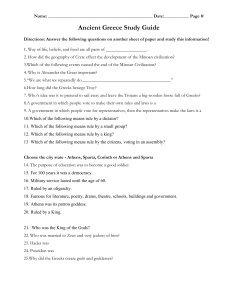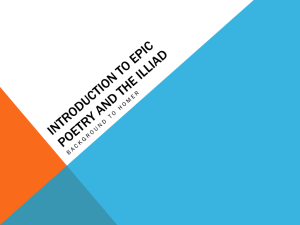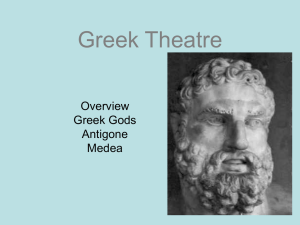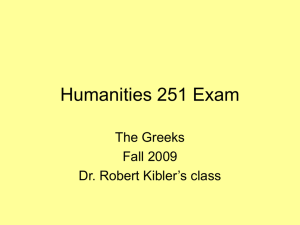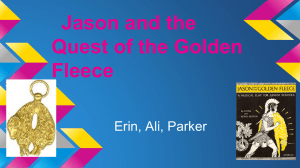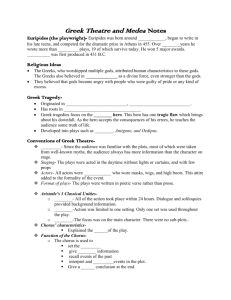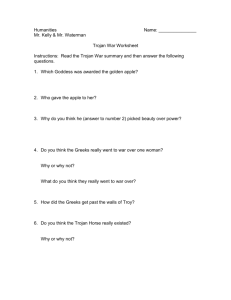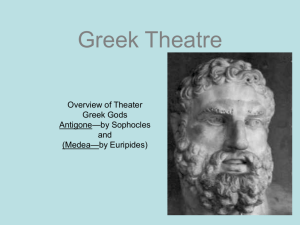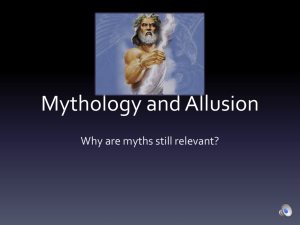Mythology by Edith Hamilton
advertisement
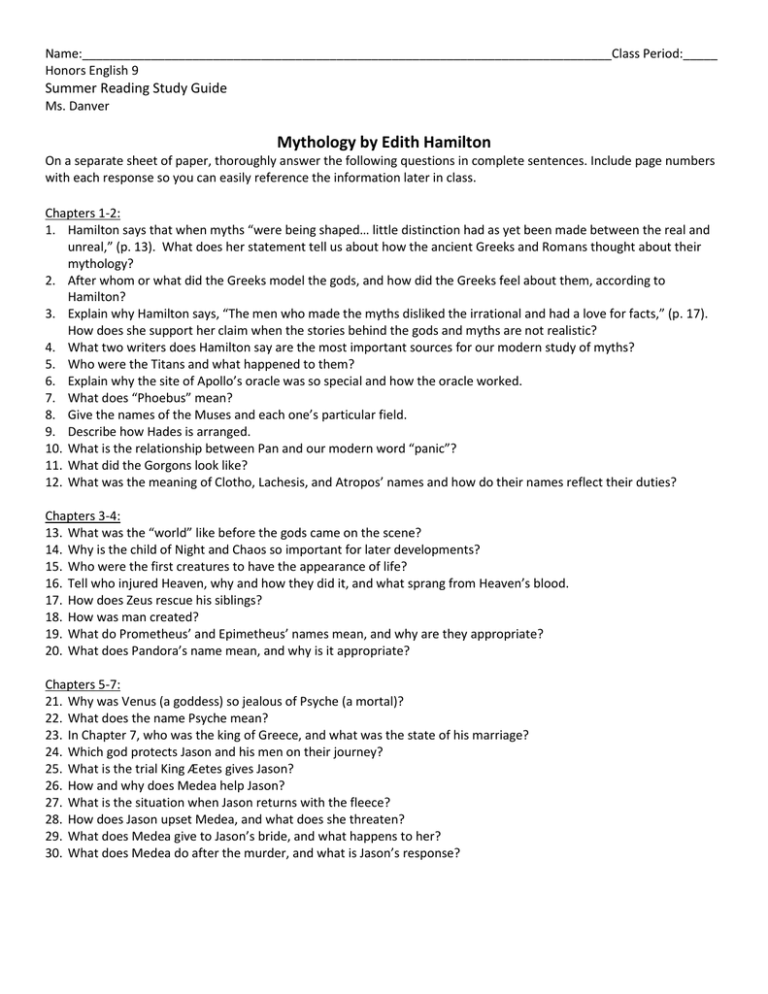
Name:_____________________________________________________________________________Class Period:_____ Honors English 9 Summer Reading Study Guide Ms. Danver Mythology by Edith Hamilton On a separate sheet of paper, thoroughly answer the following questions in complete sentences. Include page numbers with each response so you can easily reference the information later in class. Chapters 1-2: 1. Hamilton says that when myths “were being shaped… little distinction had as yet been made between the real and unreal,” (p. 13). What does her statement tell us about how the ancient Greeks and Romans thought about their mythology? 2. After whom or what did the Greeks model the gods, and how did the Greeks feel about them, according to Hamilton? 3. Explain why Hamilton says, “The men who made the myths disliked the irrational and had a love for facts,” (p. 17). How does she support her claim when the stories behind the gods and myths are not realistic? 4. What two writers does Hamilton say are the most important sources for our modern study of myths? 5. Who were the Titans and what happened to them? 6. Explain why the site of Apollo’s oracle was so special and how the oracle worked. 7. What does “Phoebus” mean? 8. Give the names of the Muses and each one’s particular field. 9. Describe how Hades is arranged. 10. What is the relationship between Pan and our modern word “panic”? 11. What did the Gorgons look like? 12. What was the meaning of Clotho, Lachesis, and Atropos’ names and how do their names reflect their duties? Chapters 3-4: 13. What was the “world” like before the gods came on the scene? 14. Why is the child of Night and Chaos so important for later developments? 15. Who were the first creatures to have the appearance of life? 16. Tell who injured Heaven, why and how they did it, and what sprang from Heaven’s blood. 17. How does Zeus rescue his siblings? 18. How was man created? 19. What do Prometheus’ and Epimetheus’ names mean, and why are they appropriate? 20. What does Pandora’s name mean, and why is it appropriate? Chapters 5-7: 21. Why was Venus (a goddess) so jealous of Psyche (a mortal)? 22. What does the name Psyche mean? 23. In Chapter 7, who was the king of Greece, and what was the state of his marriage? 24. Which god protects Jason and his men on their journey? 25. What is the trial King Æetes gives Jason? 26. How and why does Medea help Jason? 27. What is the situation when Jason returns with the fleece? 28. How does Jason upset Medea, and what does she threaten? 29. What does Medea give to Jason’s bride, and what happens to her? 30. What does Medea do after the murder, and what is Jason’s response? Page |2 Chapters 9-12: 31. 32. 33. 34. 35. 36. 37. Who visited Danaё in her chamber, and in what form was he? What was Andromeda’s punishment, and why was she being punished? Who kept Medusa’s head and what did she do with it? When Theseus arrived at Athens, why was he an acknowledged hero? Explain the new government in Athens. Hercules is honored as the greatest hero of Greece except where? Who do they consider the greatest hero? What aspects of Hercules’s character are shown in the story of Admetus and Alcestis as the Greeks saw it? Chapter 13-14: 38. What were the three things that Hera, Athena, and Aphrodite offered Paris? 39. What did Paris do to officially spark the Trojan War? 40. Why was Artemis angry at the Greeks? 41. Why was it brave for Protesilaus to be the first to leap ashore? 42. Which gods were on the side of the (a) Trojans and (b) Greeks? 43. To whom did Achilles give his armor and men, and why? 44. Describe Hector’s funeral. 45. How did Achilles get his vulnerable spot? 46. What was the Palladium and who stole it? 47. During the final battle, why did the Greeks suffer in the more distant parts of Troy? 48. Who was the only Trojan to escape, and who was his mother? 49. What happened to Helen, the alleged cause of the war, in the end? 50. What was the fate of the Trojan women? Antigone by Sophocles The Oxford English Dictionary defines allusion as “a casual reference in literature to a person, place, event, or another passage of literature, often without explicit identification. Allusions can originate in mythology, biblical references, historical events, legends, geography, or earlier literary works. Authors often use allusion to establish a tone, create an implied association, contrast two objects or people, make an unusual juxtaposition of references, or bring the reader into a world of experience outside the limitations of the story itself. Authors assume that the readers will recognize the original sources and relate their meaning to the new context. For instance, if a teacher were to refer to his class as a horde of Mongols, the students will have no idea if they are being praised or vilified unless they know what the Mongol horde was and what activities it participated in historically. This historical allusion assumes a certain level of education or awareness in the audience, so it should normally be taken as a compliment rather than an insult or an attempt at obscurity.” On a separate sheet of paper, explain the following allusions from Antigone. Allusions in Antigone: 51. Describe the main events in the Battle of Thebes. 52. Who is Cadmus? What important things did he do? 53. Who is Dirce? What important things did she do? 54. Who are Tantalus and Niobe? What did the Gods think of them? 55. Explain the story of Danae and how it relates to Antigone.
